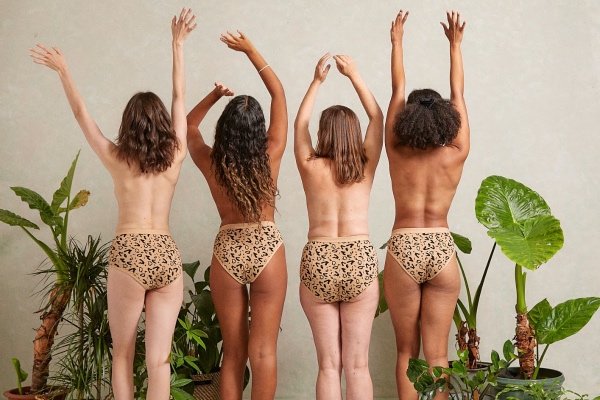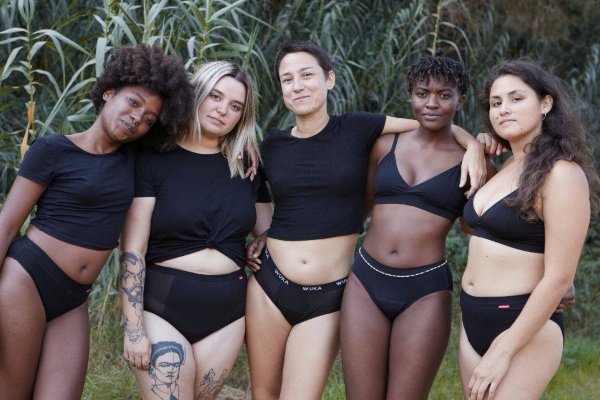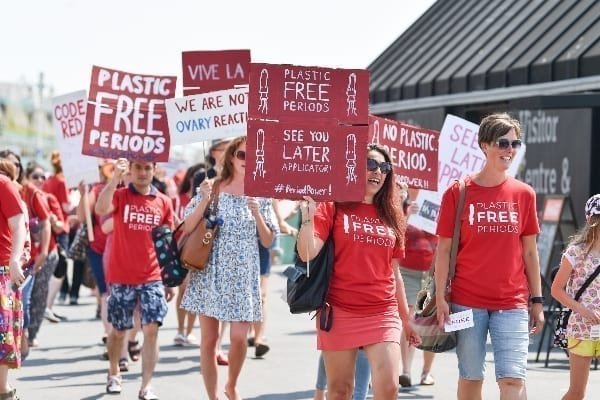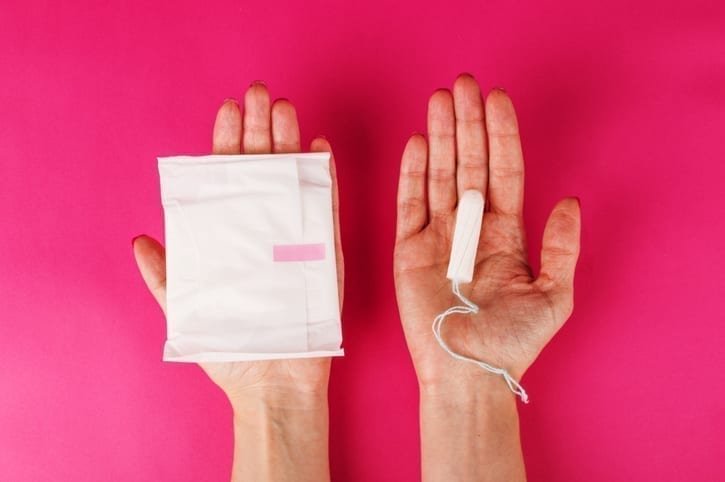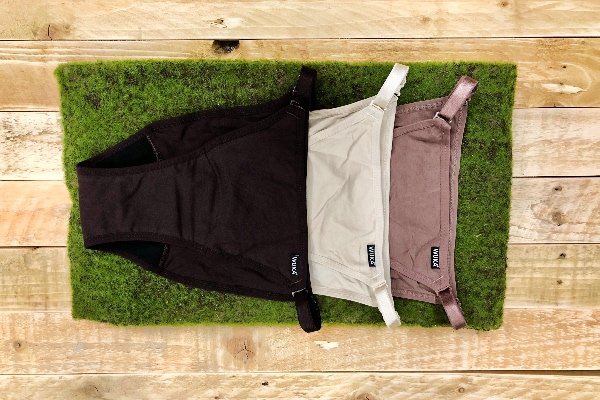What are my options?
Organic tampons + reusable applicator
Organic cotton tampons are an easy switch, and undoubtedly less harmful to the environment than their plastic-riddled counterparts.
But it’s worth noting that with this option you are still contributing to landfill waste; the reusable applicators can last around 10 years if well cared for but tend to be made from plastic.
Menstrual sponge
A menstrual sponge is a sea sponge – an aquatic organism that attaches to underwater surfaces and continuously filters sea water to support their organic functions.
Incredibly absorbent, sea sponges can be used similarly to a tampon.
After use they just need to be rinsed and can be reused for six to 12 months.
Menstrual cup or disc
A small, flexible cup or disc made from silicone or latex rubber that, rather than absorbing period blood, catches and collects it.
One of the benefits of a menstrual cup vs a tampon is that it can stay in for longer – up to 12 hours vs four to eight.
Period pads
Similar to their single-use counterparts, reusable period pads can be easily attached to your regular underwear. They are made up of layers of absorbent fabric and after use simply need to be rinsed with water before being washed more thoroughly when convenient.
Reusable period pads can be used either as your primary period product or as a back-up to catch any leaks associated with using organic tampons, menstrual cups or discs.
Labia pads
Labia pads act as a back-up when using a menstrual pad, preventing leaks by guiding menstrual blood and discharge into a cloth period pad.
Typically made from cotton, they simply fold in half and are positioned between your labia, close to the entrance of your vagina.
Period pants
Leak-proof period pants are one of the easiest and comfiest period product switches.
The multi-layered gusset in period pants works to absorb and lock-in blood, while the outer, moisture-wicking layers keep you feeling secure and dry.
Depending on your flow, you can opt for different absorbencies of pant. Plus, if you’re heading on holiday, you can try period swimwear; it works in exactly the same way, allowing you to enjoy a sunshine swim.
While a larger initial investment, period pants can last around two years if well looked after offering real value for money.
Don’t forget to do your research…
One of the biggest barriers to switching to reusable period products is undoubtedly the fear and lack of understanding as to how exactly they work.
Knowledge is power, so research the different options, try them out, work out what’s best or most comfortable for you and trust that reusable period products really do work.
It’s also worth considering that a number of factors contribute to a product’s environmental footprint – manufacturing processes, materials, shipping, recycling commitments and carbon offset initiatives.
So while reusable products are always a better option than their single-use, plastic-filled counterparts, not all reusable products are created equal. Make sure to check out a brand’s sustainability credentials before purchasing.
 Play Video about This Rock Might Just Save The World
Play Video about This Rock Might Just Save The World Play Video about Play 2 hours of rock
Play Video about Play 2 hours of rock Play Video about Play 2 hours of brook
Play Video about Play 2 hours of brook Play Video about Play 2 hours of sheep
Play Video about Play 2 hours of sheep

















